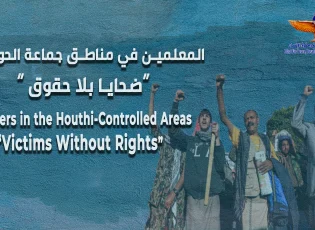Maat sends its vision of the NGO law to Parliament
Three papers present an integrated view of a democratic law for civil work
The Maat Foundation for Peace, Development and Human Rights sent this morning three policy papers that include the foundation’s vision on the draft law on associations and civil institutions for the House of Representatives. The three papers issued by them were Public Policy Analysis and Human Rights Unit Affiliated to the Foundation under the following headings: “Problems of supervision and control of the work of civil society organizations - Towards corrective measures for the relationship between the administrative body and organizations., “A proposed vision to re-classify and arrange non-governmental work organizations in Egypt“, And the“Institutional and financing challenges for civil society organizations in Egypt - a realistic vision and recommendations The Foundation has developed them based on extensive community discussion sessions with a group of people concerned with the freedom of civil society work, and based on a set of comparative studies of laws regulating the work of civil society organizations in a variety of countries of the world. This is in the context of the Foundation's interest in drafting and submitting a set of legislative and policy proposals to assist the state in adopting new policies and legislation compatible with its international obligations through a project The Universal Periodic Review as a Tool to Improve Public Policies during the Transition Which is implemented by the Foundation with funding from the European Union over the course of 2016-2017.
The most important issues that the policy papers focused on focus on discussing the problems of dependency and supervision in accordance with the framework of Law 84 of 2002 and its executive regulations, while addressing supervision and control in some European and Arab countries through registration methods and oversight bodies, classifying civil work institutions in Egypt, the imperative that the new law includes rules Fair and appropriate in dealing with NGOs according to their specific weight, institutional capabilities and degree of growth, structural and financing crises that organizations suffer from as a result of legal problems, types of funding and the reasons for its unsustainability.
The most important recommendations included in the policy papers included the rehabilitation and training of the administrative body’s cadres, amending some articles of the NGO law, especially articles that violate Article 75 and Article 97 of the new Egyptian constitution with the amendment of Article 7 of the law, which prohibits the right to litigation except after presentation to the Dispute Settlement Committee In order to comply with the correctness of the constitutional articles, controlling Article 11 of the law by fully clarifying the concept of rubber terms, amending the law to make affiliation or participation in international associations or institutions an inherent right for all organizations upon notification. Classifying NGOs legally according to the nature of the main activity and the organizational level And obligating the administrative body to respond to accepting foreign funds, especially, within 30 days of the institution or association notifying the administrative body.











